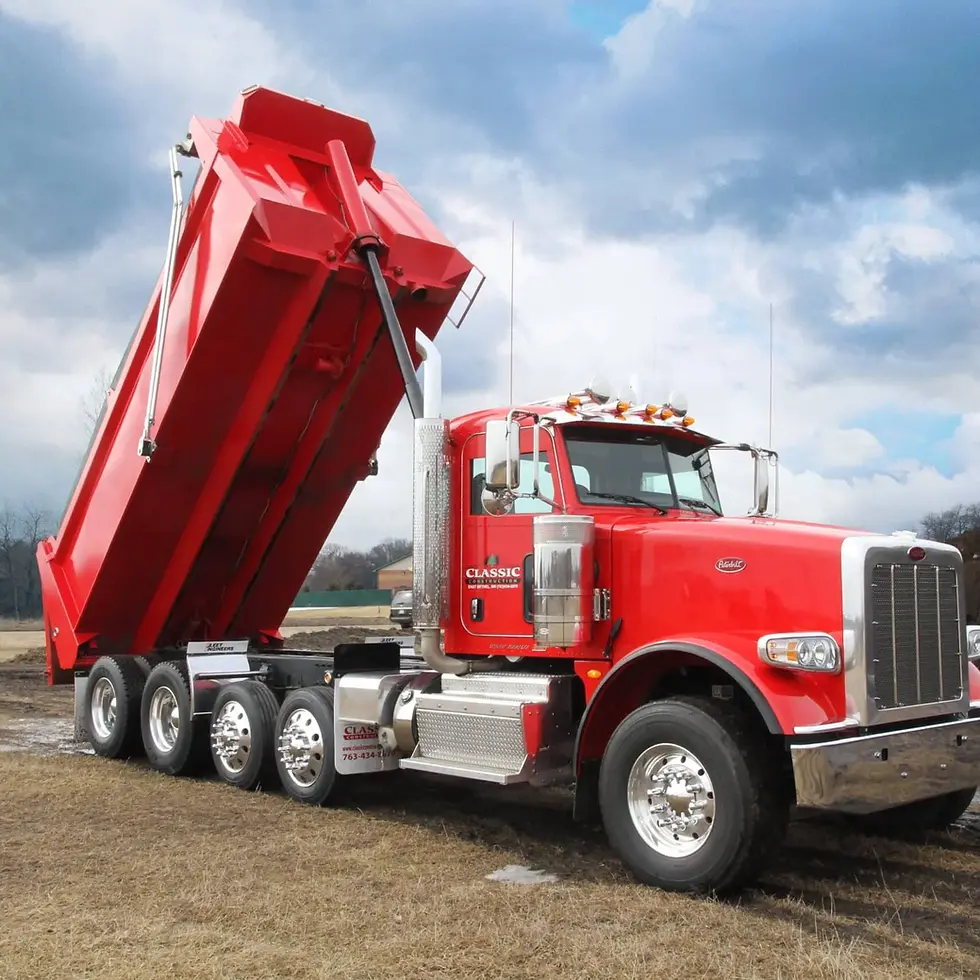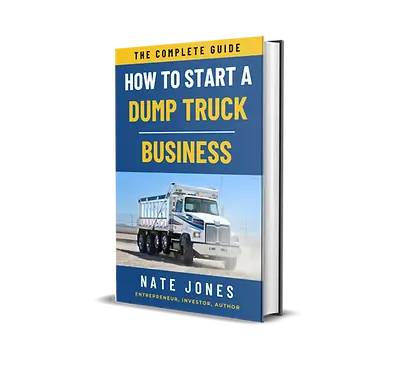How To Start a Dump Trucking Business: A Step-by-Step Guide
- Nate Jones, CPCU, ARM, CLCS, AU

- Aug 6, 2025
- 2 min read
Updated: Aug 14, 2025
The dump trucking industry plays a vital role in construction, landscaping, and infrastructure development. Whether you're hauling gravel, demolition debris, or asphalt, dump trucks are essential for moving heavy materials efficiently. Starting a dump trucking business can be a rewarding career path with the right preparation, equipment, and insurance.

At Wexford Insurance, we specialize in helping dump truck operators find the right commercial trucking insurance to protect their investment and meet legal requirements. If you're ready to get started, here’s a clear step-by-step guide to help you launch your business.
Step 1: Understand the Industry
Before investing in equipment or registering a business, take time to research:
Types of dump trucks (standard, transfer, side dump, etc.)
Common materials hauled
Local demand for hauling services
Seasonal trends and competition
This foundational knowledge will help you make informed decisions and identify your niche.
Step 2: Create a Business Plan
A business plan helps you stay organized and focused. Include:
Services you’ll offer (e.g., hauling for construction, landscaping, demolition)
Target customers (contractors, municipalities, homeowners)
Pricing strategy
Startup and operating costs
Marketing and growth plans
Step 3: Register Your Business
Choose a legal structure such as:
Sole proprietorship
Limited Liability Company (LLC)
Corporation
Register your business with your state and apply for an Employer Identification Number (EIN) from the IRS.
Step 4: Obtain a Commercial Driver’s License (CDL)
To operate a dump truck legally, you’ll need a Class B CDL (or Class A if towing trailers over 10,000 lbs.). You may also need:
DOT registration
Hauling permits
Vehicle inspections
Check with your local Department of Transportation for specific requirements.
Step 5: Purchase or Lease a Dump Truck
Decide whether to buy new, used, or lease based on your budget. Consider:
Load capacity
Fuel efficiency
Maintenance history
Financing options
Start with one truck and expand as your business grows.
Step 6: Get Dump Truck Insurance
Insurance is essential to protect your truck, your business, and your clients. Wexford Insurance offers tailored coverage for dump truck operators, including:
Step 7: Find Dump Trucking Contracts
Build relationships with:
Local contractors
Construction companies
Landscaping businesses
Municipalities
You can also bid on jobs through platforms like:
Construction Bid Source
SAM.gov for government contracts
Step 8: Market Your Business
Promote your services through:
A professional website
Social media platforms
Local business directories
Networking with industry professionals
Consistent branding and visibility will help you attract clients and grow your reputation.
💡 Want a full startup guide? Download our eBook: “How to Start a Dump Trucking Business”

Why Insurance Matters for Dump Truck Operators
Operating a dump truck involves risks—accidents, property damage, and cargo loss. Without proper insurance, a single incident can derail your business. At Wexford Insurance, we understand the unique challenges of dump trucking and offer custom insurance solutions to keep you protected and compliant.
Frequently Asked Questions




